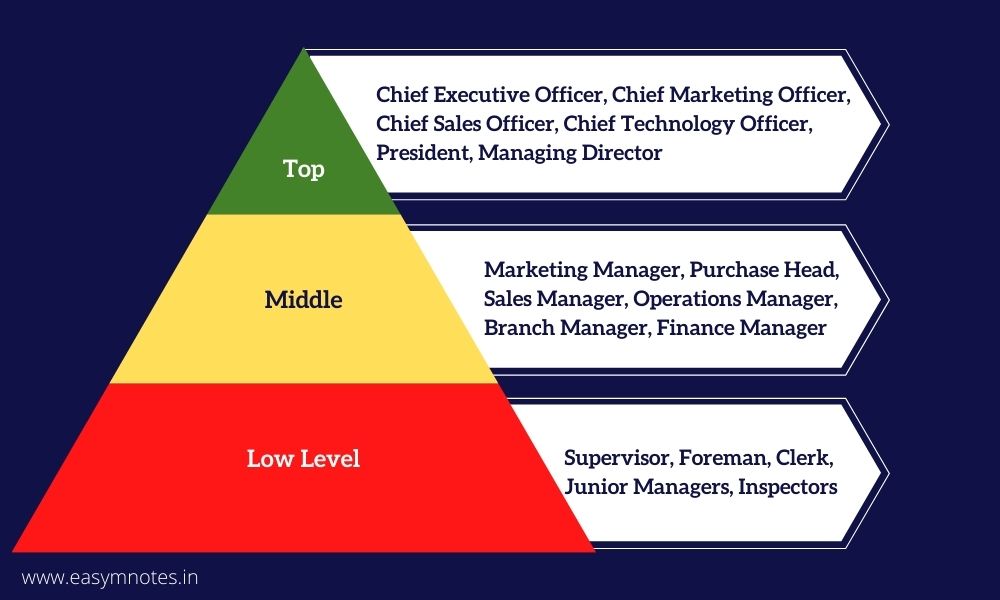Middle Management: Their Value To Companies And Their Staff

Table of Contents
The Bridge Between Leadership and Employees
Middle managers serve as a critical link, connecting senior leadership with front-line employees. This bridging function is vital for effective communication and a motivated workforce.
Improved Communication and Information Flow
Middle managers act as a vital communication link, translating strategic directives from upper management into actionable tasks for front-line employees, and vice-versa. This two-way communication flow is essential for organizational success.
- Translates complex strategies into clear, understandable goals. They break down large-scale initiatives into manageable tasks, ensuring everyone understands their role and contribution.
- Facilitates feedback loops between employees and senior leadership. This allows for the upward flow of information, providing valuable insights from the ground level. Effective middle managers actively solicit and relay employee feedback.
- Identifies and addresses communication breakdowns promptly. They act as early warning systems, detecting and resolving communication issues before they escalate into larger problems.
- Ensures consistent messaging across teams. This prevents confusion and ensures everyone is working towards the same goals with a unified understanding.
Enhanced Employee Engagement and Motivation
Effective middle managers are crucial for building a positive and productive work environment. Their ability to foster engagement directly impacts employee retention and overall company performance.
- Provides regular feedback and recognition to team members. Regular feedback, both positive and constructive, helps employees understand their performance and areas for improvement. Recognition boosts morale and motivation.
- Offers mentorship and career development opportunities. Investing in employee growth demonstrates care and commitment, fostering loyalty and increasing engagement. Mentorship provided by middle management is invaluable for professional development.
- Creates a supportive and collaborative team culture. A positive and collaborative environment encourages teamwork and boosts productivity. Middle managers play a key role in setting the tone.
- Addresses employee concerns and resolves conflicts efficiently. They act as mediators, resolving disputes fairly and promptly, preventing negativity from spreading.
Driving Operational Efficiency and Productivity
Middle management plays a pivotal role in optimizing workflows and maximizing resource utilization, directly impacting a company's bottom line.
Streamlined Processes and Workflow Optimization
Middle managers are responsible for optimizing day-to-day operations, ensuring smooth workflow and identifying areas for improvement.
- Implements efficient work methodologies and tools. They introduce and train teams on new technologies and processes to enhance productivity.
- Identifies and eliminates bottlenecks in workflows. By analyzing processes, they pinpoint inefficiencies and implement solutions to improve speed and output.
- Delegates tasks effectively to maximize team productivity. Proper task delegation ensures that work is distributed fairly and efficiently.
- Monitors performance and implements corrective actions. Regular monitoring and evaluation help identify areas needing improvement, allowing for timely adjustments.
Resource Allocation and Management
Effective resource allocation is crucial for achieving organizational goals. Middle managers are key to ensuring resources are used effectively and efficiently.
- Manages budgets and resources within assigned teams. They are responsible for making informed decisions on how to allocate resources within budget constraints.
- Prioritizes tasks based on strategic goals. They align team efforts with overall company objectives, focusing on high-priority tasks.
- Ensures adequate resources are available to meet deadlines. Proactive resource planning is essential to prevent delays and setbacks.
- Tracks progress against budgets and adjusts resource allocation as needed. This ensures efficient resource management and prevents unnecessary expenses.
Fostering Innovation and Adaptability
Middle management plays a critical role in fostering a culture of innovation and adapting to change, vital aspects for sustained success in today's dynamic business environment.
Identifying Emerging Trends and Opportunities
Middle managers are often at the forefront of identifying trends and opportunities impacting their teams. Their insights are crucial for adapting strategies and maintaining a competitive edge.
- Monitors industry trends and market changes. They stay informed about industry developments to anticipate challenges and capitalize on new opportunities.
- Identifies opportunities for innovation and improvement. They encourage experimentation and proactively seek ways to enhance team performance.
- Proactively suggests changes to enhance team performance. They are not afraid to propose improvements and changes to enhance efficiency and effectiveness.
- Adapts strategies in response to unexpected challenges. They are able to adjust plans and respond effectively to unforeseen circumstances.
Championing Change and Embracing New Technologies
Middle managers are essential in driving the adoption of new technologies and processes, ensuring a smooth transition and minimizing disruption.
- Drives adoption of new technologies and methodologies. They lead by example, demonstrating their commitment to new technologies and innovations.
- Provides training and support to team members. They ensure their teams have the necessary skills and support to utilize new technologies effectively.
- Addresses employee concerns about new initiatives. They create a safe space for employees to express concerns and receive clarification, mitigating resistance to change.
- Champions innovation and encourages experimentation within the team. They foster a culture that embraces new ideas and encourages creative problem-solving.
Conclusion
In conclusion, effective middle management is not merely a layer of bureaucracy, but a vital component of a successful organization. They act as a crucial bridge between leadership and employees, driving operational efficiency, fostering innovation, and boosting employee morale. By understanding and investing in their capabilities, companies can significantly enhance their overall performance and achieve sustainable growth. Investing in strong middle management is investing in the future of your company. Recognize the value of your middle management team and unlock their full potential for improved organizational performance. Don't underestimate the power of effective middle management! Invest in training and development programs for your middle managers to further enhance their skills and maximize their contribution to your company's success. Nurturing your middle management is a strategic investment in your company's future.

Featured Posts
-
 2025 Nfl International Games The Packers Potential Double Header
Apr 29, 2025
2025 Nfl International Games The Packers Potential Double Header
Apr 29, 2025 -
 Jeff Goldblums Wife Emilie Livingstons Age And Children
Apr 29, 2025
Jeff Goldblums Wife Emilie Livingstons Age And Children
Apr 29, 2025 -
 Debate Ensues Over Convicted Cardinals Eligibility For Papal Conclave Vote
Apr 29, 2025
Debate Ensues Over Convicted Cardinals Eligibility For Papal Conclave Vote
Apr 29, 2025 -
 Trumps Posthumous Pardon For Pete Rose A Full Report
Apr 29, 2025
Trumps Posthumous Pardon For Pete Rose A Full Report
Apr 29, 2025 -
 Jeff Goldblums Viral Oscar Moment Internet Responds To Relatable Star
Apr 29, 2025
Jeff Goldblums Viral Oscar Moment Internet Responds To Relatable Star
Apr 29, 2025
